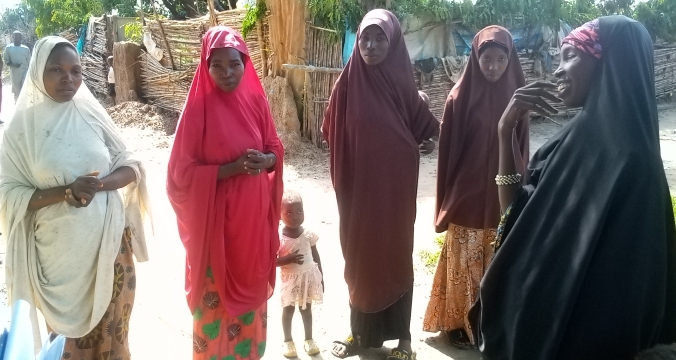By Ahmed Ahmed
The recent flood that swept through Buskuri Community, Katagum Local Government Area, Bauchi State has left a trail of destruction, claiming millions of naira worth of farmlands, domestic animals, and residential buildings.
The community, which has never witnessed such a natural disaster, is now grappling with the aftermath.
Two women, Mrs. Amina Mansur, a 36-year-old widow and mother of six, and Hauwa Buskuri, a 29-year-old mother of three, shared their harrowing experiences.
“We have lost everything,” Mrs. Mansur lamented. “Our homes, farmlands, and animals are gone. We have no food, no clean water, and our children are falling ill.”
The flood has led to the collapse of several houses, leaving many homeless. The community’s wells have also collapsed, and the water sources are contaminated, leading to the spread of waterborne diseases.
Tragically, a child of 3 years has died from one of these diseases as well as animal dying as a result of drinking contaminated water.
The women appealed to the relevant authorities to come to their aid, saying, “We need help to rebuild our lives. We need food, shelter, and clean water.”
Malam Gambo Abubakar, the traditional ruler of the community, solicited assistance from both the state and federal governments, saying, “My subjects have lost everything. We need help to rebuild not just our homes but our lives.”
As the community struggles to come to terms with the devastating effects of the flood, the women’s pleas for help serve as a reminder of the urgent need for support and assistance.
The government and relevant authorities must act swiftly to provide aid and rebuild the community’s shattered lives.
In response to the crisis, a team of experts led by Mrs. Rahab Jatau, Chief Scientific Officer of RUWASSA, has embarked on a chlorination exercise to ensure the safety of the community’s water sources.
The team has chlorinated the water wells and provided drinking water disinfectants, effective against nearly all waterborne pathogens.
Mrs. Jatau emphasized the importance of promoting good hygiene practices, such as handwashing and proper sanitation, to reduce the risk of waterborne diseases.
She urged the community to support the initiative by ensuring their wells are treated with chlorine and helping to curtail the spread of communicable diseases.
The exercise is a collaborative effort between state government agencies, including RUWASSA, SEMA, Primary Health Care Development Board, State Environmental Protection Agency, and Media, with the support of UNICEF.
Mrs. Jatau explained that the chlorination exercise is crucial in preventing the spread of waterborne diseases, reducing child mortality rates, and protecting vulnerable populations.
She added that sensitization campaigns can raise awareness about the importance of hygiene practices, leading to behavior change and improved health habits.
On his part, Mr Mohammed Kamfut, UNICEF Bauchi Field Office, Water, Sanitation, and Hygiene (WASH) Specialist said UNICEF as part of cor-responsibility with state government implementing partners were aims to reduce the risk of waterborne diseases and improve overall health and hygiene in flood-affected communities.
He said UNICEF supports the communities affected by floods through various Water, Sanitation, and Hygiene (WASH) interventions.
“Our commitment typically involves providing technical support to ensure that flood-affected communities have access to safe drinking water.
“This involves the distribution and application of chlorine solutions to disinfect contaminated water sources, preventing waterborne diseases.
“We also supply and distribute water purification tablets or systems to communities. These tools help individuals and families purify water at the household level, making it safe for consumption.
Kamfut stressed that UNICEF offers expertise and training to local partners and communities on best practices for water treatment and hygiene, to ensure that interventions are effectively implemented and maintained.
The WASH Specialist said plans are on the way to deploy teams to assess other local government areas and communities for immediate interventions.





